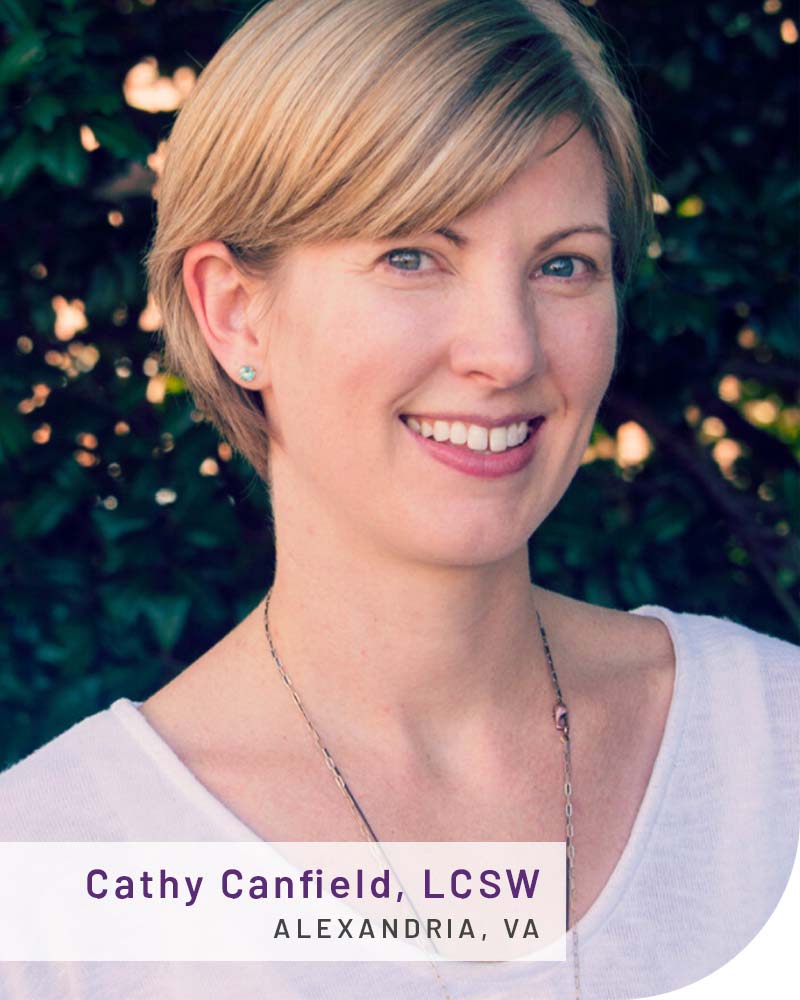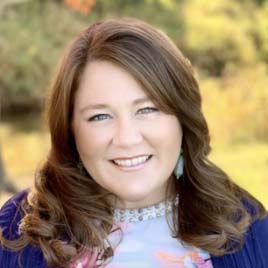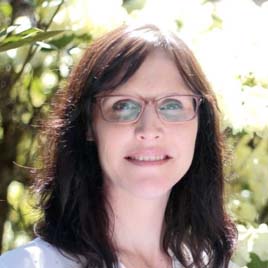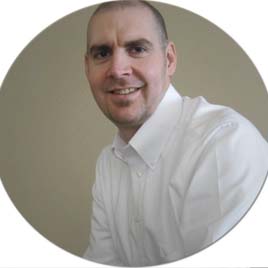“I got so frustrated with my group practice that I started writing ‘end dates’ on my calendar. I convinced myself that if the practice wasn’t doing better in two months, I would close it. That is when I finally reached out to you.”
Case Studies

“Before working with you, my group practice was in the red $2,000 a month. I was ready to close it.”
Cathy had been a very successful solo practitioner. As her caseload grew, she brought on additional clinicians. “But I couldn’t understand why it was taking so long to be profitable since we were doing more sessions than I was by myself.” In fact, Cathy had to hold an additional day job to pay her bills. This was not the dream! Also, her admin staff treated her like a client rather than the owner. This imbalance in the relationship led to fewer intakes and a lot of frustration. Cathy knew she needed some group practice help but was afraid that she might be judged negatively since the practice wasn’t where she wanted it to be.
“I got so frustrated with my group practice that I started writing ‘end dates’ on my calendar. I convinced myself that if the practice wasn’t doing better in two months, I would close it. That is when I finally reached out to you.”
It takes very different muscles and tasks to succeed with group practice as compared to solo practice. We looked at Cathy’s strengths first – she was smart, ambitious, and tenacious. She liked people. That said, we needed to focus on helping her ‘be the CEO and boss,’ which was a role she hadn’t trained for.
The next thing we did was help her begin to manage her business ‘by the numbers.’ Her P&L report became a handy tool and guide. We then helped her to revise her compensation model for clinicians because she could not be profitable at her current structure. Finally, we helped her with hiring strategies so that future hires enhanced the company culture.
“I’m proud of the improvements I have made. No longer do I need an additional day job. I now pay myself a nice salary and can afford vacations. My business is run as a business with informed decisions based on data. I’ve improved my hiring practices, and our revenue is expected to be up 63% from last year. And best of all – I have energy and excitement for the future!”

“Before working with you, my group practice was in the red $2,000 a month. I was ready to close it.”
Cathy had been a very successful solo practitioner. As her caseload grew, she brought on additional clinicians. “But I couldn’t understand why it was taking so long to be profitable since we were doing more sessions than I was by myself.” In fact, Cathy had to hold an additional day job to pay her bills. This was not the dream! Also, her admin staff treated her like a client rather than the owner. This imbalance in the relationship led to fewer intakes and a lot of frustration. Cathy knew she needed some group practice help but was afraid that she might be judged negatively since the practice wasn’t where she wanted it to be.
“I got so frustrated with my group practice that I started writing ‘end dates’ on my calendar. I convinced myself that if the practice wasn’t doing better in two months, I would close it. That is when I finally reached out to you.”
It takes very different muscles and tasks to succeed with group practice as compared to solo practice. We looked at Cathy’s strengths first – she was smart, ambitious, and tenacious. She liked people. That said, we needed to focus on helping her ‘be the CEO and boss,’ which was a role she hadn’t trained for.
The next thing we did was help her begin to manage her business ‘by the numbers.’ Her P&L report became a handy tool and guide. We then helped her to revise her compensation model for clinicians because she could not be profitable at her current structure. Finally, we helped her with hiring strategies so that future hires enhanced the company culture.
“I’m proud of the improvements I have made. No longer do I need an additional day job. I now pay myself a nice salary and can afford vacations. My business is run as a business with informed decisions based on data. I’ve improved my hiring practices, and our revenue is expected to be up 63% from last year. And best of all – I have energy and excitement for the future!”

Alexandria, VA
Cathy Canfield, LCSW
“Before working with you, my group practice was in the red $2,000 a month. I was ready to close it.”
Cathy had been a very successful solo practitioner. As her caseload grew, she brought on additional clinicians. “But I couldn’t understand why it was taking so long to be profitable since we were doing more sessions than I was by myself.” In fact, Cathy had to hold an additional day job to pay her bills. This was not the dream! Also, her admin staff treated her like a client rather than the owner. This imbalance in the relationship led to fewer intakes and a lot of frustration. Cathy knew she needed some group practice help but was afraid that she might be judged negatively since the practice wasn’t where she wanted it to be.
“I got so frustrated with my group practice that I started writing ‘end dates’ on my calendar. I convinced myself that if the practice wasn’t doing better in two months, I would close it. That is when I finally reached out to you.”
It takes very different muscles and tasks to succeed with group practice as compared to solo practice. We looked at Cathy’s strengths first – she was smart, ambitious, and tenacious. She liked people. That said, we needed to focus on helping her ‘be the CEO and boss,’ which was a role she hadn’t trained for.
The next thing we did was help her begin to manage her business ‘by the numbers.’ Her P&L report became a handy tool and guide. We then helped her to revise her compensation model for clinicians because she could not be profitable at her current structure. Finally, we helped her with hiring strategies so that future hires enhanced the company culture.
“I’m proud of the improvements I have made. No longer do I need an additional day job. I now pay myself a nice salary and can afford vacations. My business is run as a business with informed decisions based on data. I’ve improved my hiring practices, and our revenue is expected to be up 63% from last year. And best of all – I have energy and excitement for the future!”

Gurnee, IL
Kristin Patten, LPCC
“Practical strategies and emotional support helped me grow from my first client to a thriving group practice”
When Kristin was pregnant with her fourth child, she knew she couldn’t keep working at her hospital job. “I did want to be successful in my career, but what I really wanted was life balance. I knew that I did not want to miss my children’s lives.”
Kristin began scouring the internet for all the business advice for therapists that she could find. She found our site and loved the name and vision. “No one was encouraging therapists to be wealthy, and your definition of wealthy included the life balance I needed. I watched every video you did and shared them with my entrepreneurial brother. He said, ‘Just do everything she says.’ So I did!”
The first obstacle was to increase her referrals. As she did this, her caseload grew, and the next step was to bring on additional clinicians. Kristin, a new group practice owners do, made errors in deciding on a compensation model. “We ended with almost $50,000 in debt because I paid my additional clinician too much.”
The next step was to build her CEO dashboard metrics and learn to structure her business toward sustainability.
Next, she took advantage of our ‘predictor spreadsheet,’ which helped her identify her next business goals. Kristin was able to identify the number of therapists, clients, and space needed to attain her revenue goals. Then she took daily action to build her business – hiring therapists and increasing her referrals.
Kristin reports, “What I like about working with you is the blend between practical strategies and emotional support. My brother was right – you’ve got this figured out.”
Today, Kristin pays herself the highest wage she has ever earned, even while on vacation. This year’s revenue is projected to be up 109% from last year – doubling last year’s success! “But I am the proudest of the fact that I have created a sustainable business that provides for my family and that I’m only working about 20 hours a week, allowing for margin in life and time with my family.”

Federal Way, WA
Deborah Bloom, PsyD, LMFT
“I felt like I was working my rear-end off. I was barely getting paid and knew this was not working for me.”
Deborah runs a successful group practice in Washington state and is a proud mom of two toddlers. Most group practice owners would envy Deborah’s success. When we met, her practice was entering a rapid growth stage – including increasing referrals and numbers of clinicians significantly in a short period.
The problem was that so much was happening, she and her admin team had difficulty setting priorities. Should we verify benefits or bill for sessions? The phone was ringing off the hook, so Deborah hired more clinicians to meet the demand. But those clinicians had to be onboarded, credentialed, and trained on the software and procedures.
“I didn’t know what to first – or next. I was tired and nervous about all the things that were – and were not – happening.”
The first thing that we helped Deborah with was to pause her growth. This sounds counterintuitive and necessitated a mindset shift. But as Deborah said months later, “If you have a leaky boat, you can put as many people on board as the boat will hold, but it is not going to float.”
Once Deborah and her team accepted that a pause in growth would help them get to the next step, we identified which systems needed to be documented and/or improved. She and her team now had the time and bandwidth to develop and enhance her operational infrastructure. This led to admin staffing efficiencies and improved customer service as team roles were identified and systems clarified. Once the majority of that was done, they were ready to handle significant growth with much more ease.
Deborah says, “Occasionally, I have a week that still feels a little bit like a runaway horse but less so. The more the processes are perfected, then I do not have to deal with each instance, and I get my time back- which is very important to this mother of two!”

Prescott, AZ
Keith Cross, Ph.D., LMFT
“From professor and solo practitioner to thriving group practice owner.”
As a part-time job, Keith ahad a well-respected solo practice in Prescott, AZ specializing with couples and EFT. He always had a full caseload because of the relationships he had carefully built over the years with his peers.
“When my caseload became full, I had to refer out many couples to other therapists in my area. One day I realized that I had worked so hard to get these referrals, and I was just giving them away.”
Our first task was to help Keith modify his mindset from therapist to CEO of a group practice. “I learned that I can be caring to the clinicians in my practice, but I am not their therapist. My job as the business owner is to make the best decisions for the business which may, at times, conflict with what the clinicians want.”
With this new mindset and confidence, Keith began to address the significant areas of this business. He ran his business empathically and practically using his P&L report. Keith looked at the infrastructure and identified systems that would streamline things. As he addressed the operational infrastructure of the company, his group practice grew – doubling in size.
It is in Keith’s nature to wear many hats and shift roles quickly. But as the practice grew, the stress of the phone ringing more and clinicians needing support began to wear on him. However, the idea of hiring an assistant felt financially risky. Once we showed him how an assistant can be revenue-generating, Keith hired one and has not looked back.
“I was doing cost-benefit analyses for the bigger business decisions like for additional space. Once you showed me how to do it for the assistant, it was a no-brainer. I now wonder why I didn’t do it sooner.”
Keith can continue his full-time professorship while his assistant answers the phones, schedules clients, assists in onboarding therapists, and handles so many of Keith’s daily tasks. “She is creating systems and documenting the policies and procedures that I never got around to doing.”
“When I started with you, I was simply overwhelmed with all the decisions that needed to be made. These days, I can do more higher-level thinking and less detailed work.